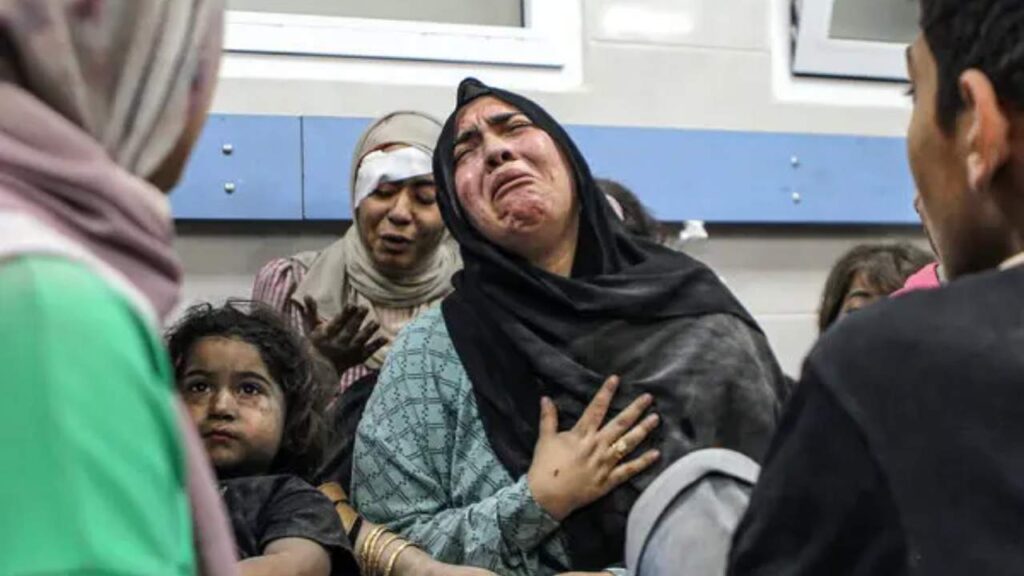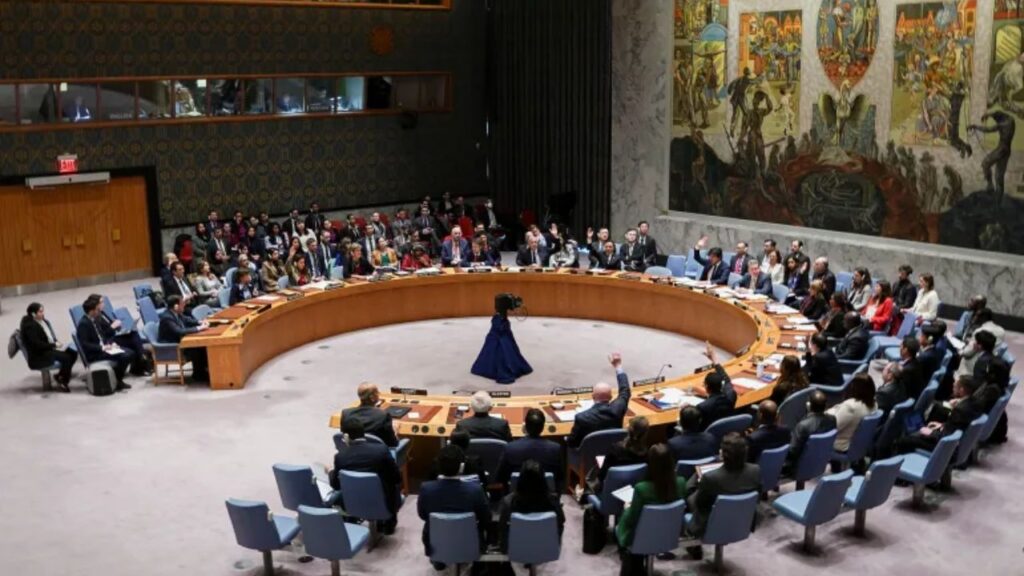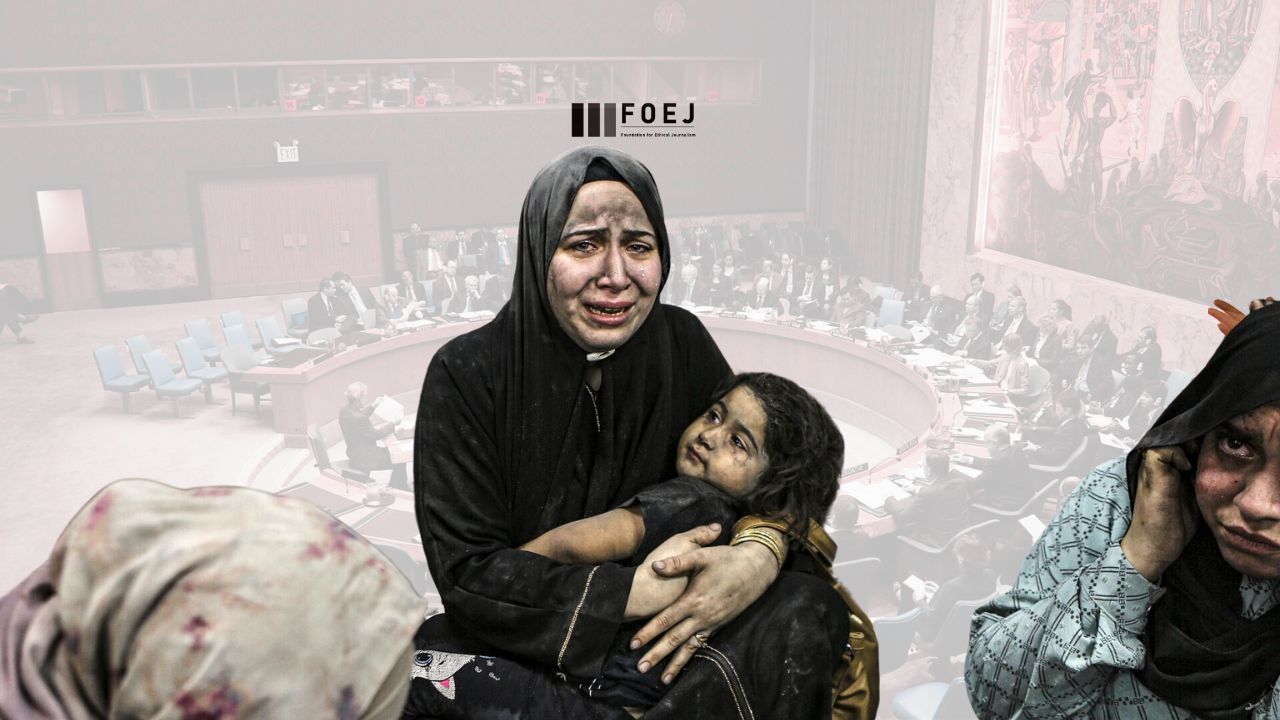The United States has vetoed a resolution put forth by Algeria in the UN Security Council that calls for an immediate ceasefire in Gaza, a territory that is presently immersed in a fierce confrontation with Israel. This is a big action. This resolution was supported by a significant majority of the council but was opposed by the United States, underscoring long-standing geopolitical tensions and alliances. The resolution arose in the aftermath of Israel’s attacks, which resulted in over 29,000 Palestinian fatalities, according to Palestinian authorities.
The vote and the Proposal
Based on last month’s interim order by the International Copurt of Justice which obliges Israel to take measures to prevent acts of genocide in the territory, the Algerian-drafted resolution, vetoed by the US, meanwhile called for an “immediate” humanitarian ceasefire. In addition, the order demanded for the release of all the hostages.
The draft resolution aimed to address the increasing violence in Gaza and was led by Algeria with support from other Arab countries. Thirteen of the fifteen members of the Security Council voted in favor when it came to a vote on Tuesday.

Arab countries, led by Algeria, scheduled a vote on the draft resolution for Tuesday, anticipating that it would fail due to the US’s warning that it would not support the text and that it would instead present a competing alternative.The United States exercised its veto, and the United Kingdom refrained from voting.
According to the UN Security Council’s framework, a resolution must receive a minimum of nine votes in favor in addition to not facing a veto from any of the five permanent members, who are the United States, the United Kingdom, France, China, and Russia.
US Justification and Alternative Plan
The U.S. ambassador to the UN, Linda Thomas-Greenfield, stated the country’s position, claiming that the resolution could thwart current talks to secure the release of hostages held by Hamas. The United States has provided a competing draft resolution, a move that reflects the complexity of the situation.
She rejected claims that the veto was a US effort to cover for an imminent Israeli ground invasion into the southernmost Gazan city of Rafah, where some 1.4 million displaced people are sheltering.
Notably, this alternate proposal, which has not yet been submitted to the Council, specifically opposes an Israeli ground offensive in the city of Rafah, representing a substantial, albeit conditional, shift in phrasing. It asks for a ceasefire.

Context of History
The ambassador of Algeria to the UN, Amar Bendjama, introduced the resolution on Tuesday, stating that silence is “not a viable option” and that the Council “cannot afford passivity” in light of what is happening in Gaza.
“This resolution opposes those who promote murder and hatred by taking a stand for the truth and humanity,” he declared. “Voting against it means endorsing the collective punishment and heinous violence inflicted upon them [the Palestinians].”
The Security Council has now voted on a resolution regarding Israel’s military actions in Gaza eight times, the most recent being this occurrence. Just two of these resolutions—neither of which called for a ceasefire—have been approved. It is noteworthy that the United States has previously rejected all resolutions requesting an immediate cessation to hostilities, thus this is not the first time it has used its veto authority against such resolutions.
It is well known that the United States frequently vetoes Security Council resolutions that condemn Israel. The United States vetoed 34 resolutions relevant to Israel and Palestine between 1945 and December 2023.
In addition, the United States vetoed at least 53 resolutions that were critical of Israel between 1972 and May 2021. These vetoed resolutions cover a broad range of topics, such as opposition to Israeli military actions against Palestinians, the occupation of East Jerusalem, violence against protestors, and the illegal Israeli settlements in Palestinian territory.









